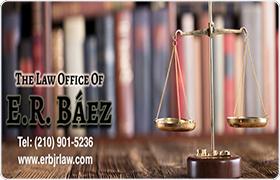Mico RICO Act Lawyer, Texas
Sponsored Law Firm
-
 x
x

Click For More Info:
-
The Law Office of E.R. Báez
700 N. Saint Mary's Street Suite 1400 San Antonio, TX 78205» view mapCriminal Defense Law The Pastor Lawyer
Every client is special to us and every client will be treated with respect and dignity. No matter how difficult the case may be, Mr. Báez will treat you with the upmost dignity.
800-903-7181
Not enough matches for Mico RICO Act lawyer.
Below are all Mico Criminal lawyers.
Irene Carmen Faulkner Morris
Wills, Clean Air Practice, Family Law, Criminal, Dispute Resolution
Status: In Good Standing
Mark William Laneman
Family Law, Consumer Bankruptcy, Criminal, Wills
Status: In Good Standing Licensed: 14 Years
Edgar William Bridges
Civil Rights, Estate Planning, Car Accident, Family Law, Criminal
Status: In Good Standing Licensed: 22 Years
James Franklin Gillen
Health Care Other, Family Law, Divorce & Family Law, Criminal, Personal Injury
Status: In Good Standing Licensed: 19 Years
Deepali Meenu Walters
Juvenile Law, Other, Divorce & Family Law, Criminal
Status: In Good Standing Licensed: 26 Years
 E.R. Báez San Antonio, TX
E.R. Báez San Antonio, TX Practice AreasExpertise
Practice AreasExpertise
